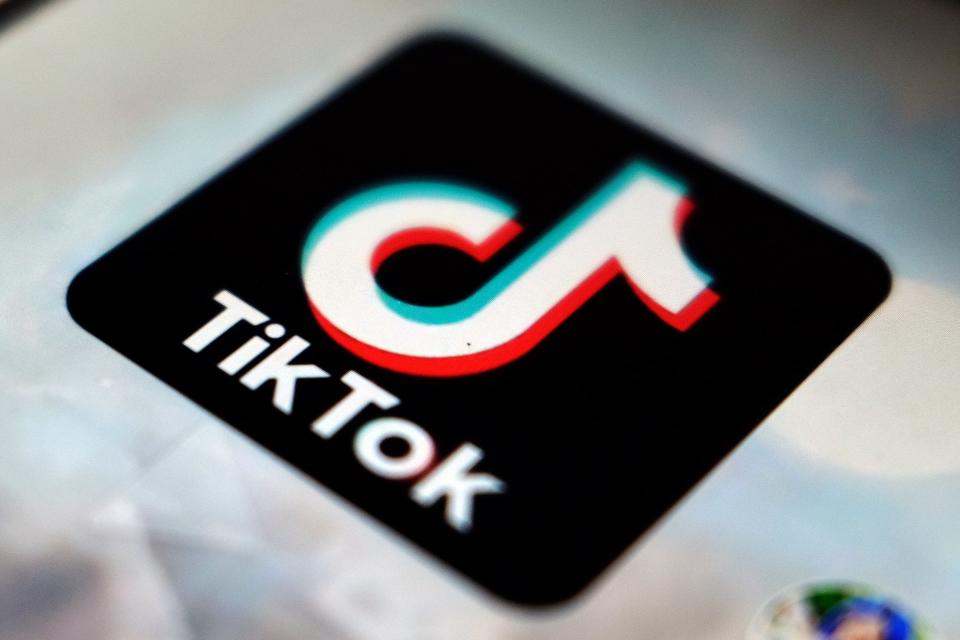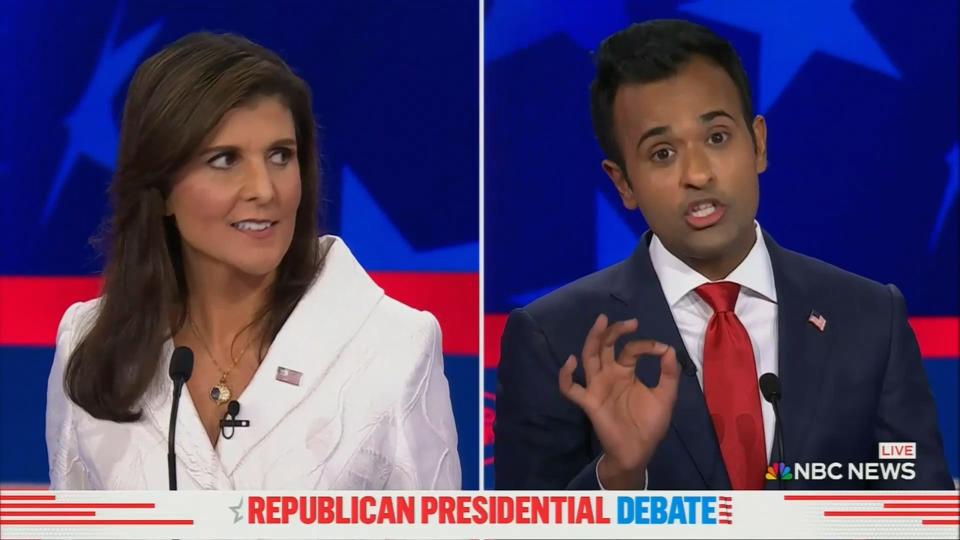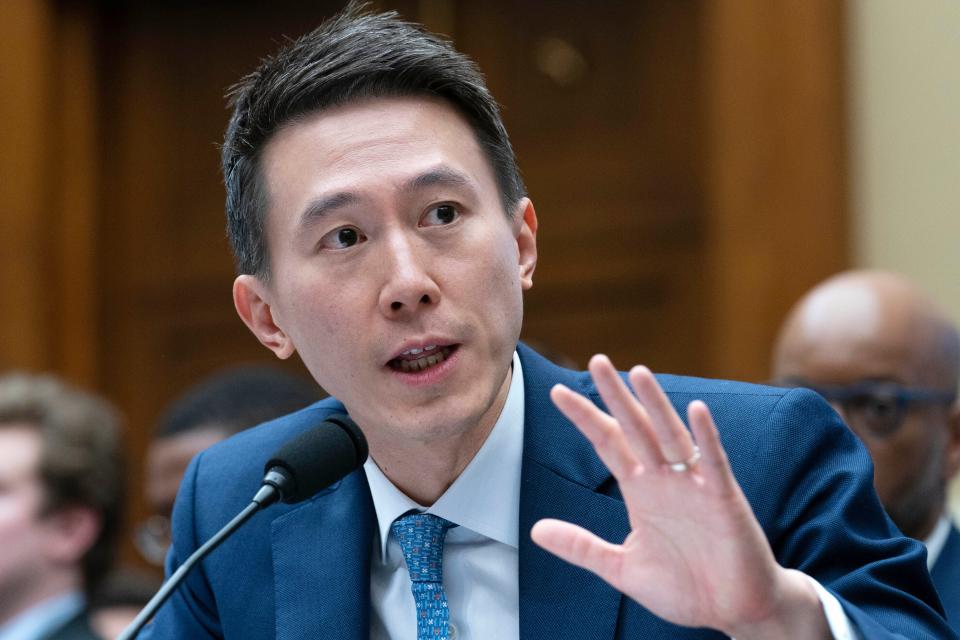Will TikTok be banned? Young voters call leaders 'out of touch' as officials wage war against the platform
“It was brutal,” Rep. Jeff Jackson, D-N.C., told his viewers in a March TikTok video, posted days after a heated congressional hearing over the popular social media platform.
In a rare bipartisan pile-on, lawmakers from both sides of the aisle had grilled TikTok CEO Shou Zi Chew for more than four hours over fears that the popular app is a national security threat. TikTok is owned by the Chinese company ByteDance, and leaders from across the political spectrum have expressed concerns the app could be used to spy on its 73 million American users, and to spread misinformation.
Just last week, former South Carolina Gov. Nikki Haley renewed her call for a TikTok ban after videos appeared on the site extolling 9/11 mastermind Osama Bin Laden, while a rival for the Republican presidential nomination, Vivek Ramaswamy, had earlier criticized Haley’s daughter for using the app.
But in their zeal to take down TikTok, Haley and a political class dominated by Baby Boomers and Generation X risk turning off younger voters, who told USA TODAY the attacks are ill-informed and unfair.
Aveline Clark, a second-year student at the University of Akron, said she finds the arguments against TikTok “laughable,” as well as “xenophobic and hypocritical.”
“American companies like Google and Meta are also stealing our data,” Clark, 20, told USA TODAY. “And the government isn’t doing anything about that. We’re not banning Google, we’re not banning Meta. But for some reason, we want to ban TikTok.”
Earlier this year, regulators in Ireland fined Meta $1.3 billion over data privacy breaches, and levied $370 million in penalties on TikTok. Google has also agreed to pay $23 million to users as part of a legal settlement in a case centered around online privacy. Meta has additionally faced billions of dollars in fines from regulators around the world over privacy concerns.
Both platforms have vowed to transparently use user data and been critical of some legal efforts and other allegations against them.
About 40% of TikTok’s users are between the ages of 18 and 24, according to the social media management platform Hootsuite. And about a quarter of adults ages 18 to 29 said they regularly get their news from TikTok, according to a Pew Research Center survey.
Politicians’ threats to ban TikTok, Clark said, may spell trouble for them with this younger audience and electorate.
“It really does not help their image at all. And politicians, in general, do not need another issue to make them seem more inauthentic,” she said.

'They don't understand it': TikTok divides generations in politics
Keely Calloway, a freshman at George Mason University in Virginia, uses TikTok every day. She said politicians’ efforts to ban the app are part of a growing generational gap.
“They’re just going against TikTok mainly because they don’t understand it,” Calloway, 18, said.
Calloway pointed to the March hearing by the House Energy and Commerce Committee.
Lawmakers “basically were just asking gibberish,” she said.
“When you have 75-year-old politicians asking, ‘Does TikTok connect to my Wi-Fi network?’ people are not really going to take those politicians seriously,” Calloway added, referring to an eyebrow-raising question by 52-year-old Rep. Richard Hudson, R-N.C.
Jackson, who has more than 2 million TikTok followers, said in a post after the hearing that, "Some of the questions were good and some definitely were not,” noting that “the majority of complaints that were raised apply to practically all social media platforms.”
Elected officials are not the only ones raising the alarm about TikTok. Presidential candidates have pitched the idea of restrictions or a national ban, including Republican hopefuls during the third and most recent GOP debate.
Former New Jersey Gov. Chris Christie vowed to ban the app in his first week as president. Florida Gov. Ron DeSantis said he believes the app is “polluting the minds” of young users.
'Just scum': Nikki Haley's daughter becomes a flashpoint as GOP candidates spar over TikTok
President Joe Biden, seeking reelection next year, has threatened to ban the app if TikTok’s Chinese owners do not sell their stake in the social media giant.
Rather than looking strong on national defense, though, Clark said candidates’ efforts to banish TikTok just make them appear “out of touch” with young voters.
“Complaining about social media and complaining about TikTok just kind of lends to that image of (an) old man who doesn’t understand anything,” she said. “It does not help their chances. It does not help their public opinion.”

Young voters recognize TikTok concerns, oppose an outright ban
Cristina Tzintzún Ramirez, president of the youth voter organization NextGen America, said TikTok is one of the most effective platforms for members of Generation Z and Millennials to engage with each other and current events.
“TikTok serves as a huge platform where young people receive and consume their news and information and helps shape a lot of their viewpoints about what’s happening in the world,” she told USA TODAY.
That reach can also make it “the wild, wild west,” Tzintzún Ramirez said, warranting skepticism and regulation.
“The truth is, it’s a double-edged sword. Yes, it’s a great way to reach and engage young people,” Tzintzún Ramirez said. “A lot of young people also receive a lot of misinformation and disinformation on the platform.”
Young voters told USA TODAY that they understand concerns about TikTok, including data privacy issues, and that they could support some regulatory measures.
“Congress has the power to curb, to restrict, to do a lot of preventative measures,” said Jeremiah LaPorte, a high school senior and youth activist in New Jersey. “Saying that there’s no way to take preventative measures, and the only thing to do is to take it away in total – I just think that’s a little extra.”
Calloway said young people like herself are more concerned about losing the app than potential security risks.
“Most of what it seems like right now is just another Red Scare situation, where there’s nothing super scary that you should really be afraid of, but they just try to find something to make you be afraid of – for some reason – to ban this thing,” Calloway said.
Instead of restrictions, Clark said she would like to see better education on Internet safety and moderation. And, she said, the measures should apply across social media platforms.
“Young people understand,” Clark said.
When using social media, she said, “you are probably going to have data stolen from you without your knowledge. And it’s something that a lot of young people just kind of accept. And not that I think that we should continue to accept it … But young people can see through the facade of politicians trying to single out TikTok as the single evil Communist data stealer.”

TikTok can also be a tool for politicians reaching young voters
Young voters are also paying attention to the politicians that engage with them on TikTok, LaPorte, 17, said.
“You can tell who is hearing the message of connecting to the young voters and who is not,” he said, adding that it’s something other young people “should definitely take note of when deciding who we want to represent us, and who’s making our policy.”
Clark said she thinks Jackson, the North Carolina congressman, is successful because of his “authentic” approach.
Calloway likewise said Jackson has struck a chord with people her age by making them feel more included in government.
“A lot of people on TikTok trust him because of the fact that he’s so open and so transparent. And I noticed a lot of youth really look up to him,” Calloway said.
This article originally appeared on USA TODAY: A TikTok ban? These young voters say politicians are 'out of touch'

